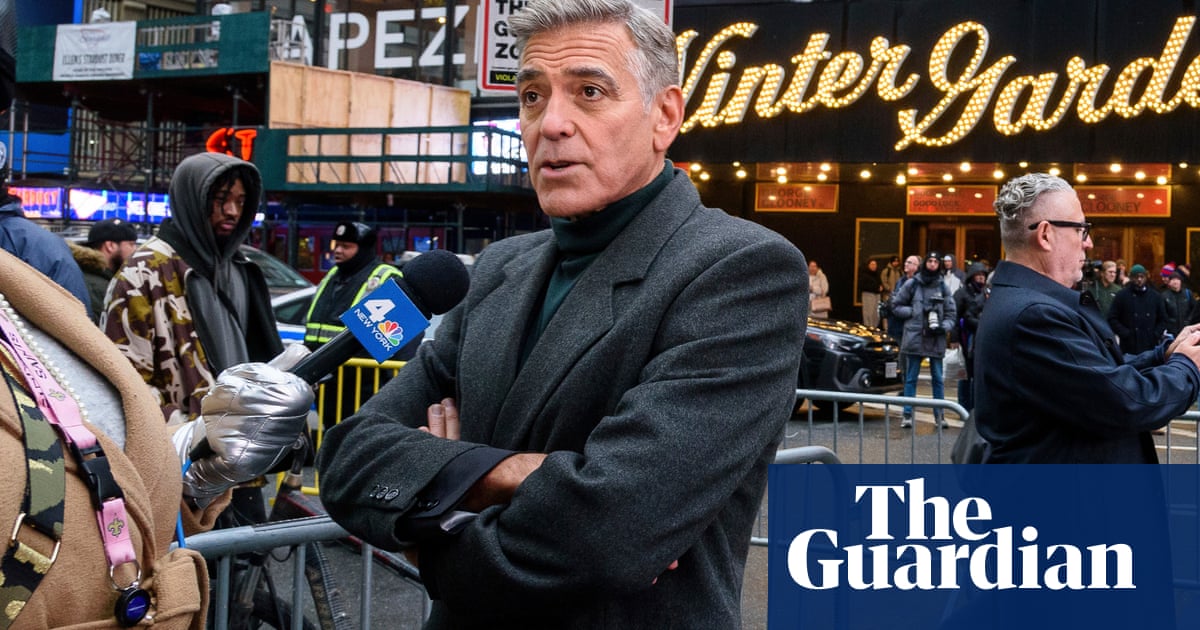Hollywood reporting was recently abuzz that on the heels ofrecord Memorial Day weekend grossesled by the Lilo & Stitch remake and a Mission: Impossible sequel, total summer box office could cross the $4bn mark for only the second time since the Covid disruption of 2020. (The first time was summer 2023, on the strength of Barbenheimer.) To be clear, this wouldn’t guarantee an all-time summer record; the numbers would need to get a lot closer to $5bn for that to happen. But something in the $4bn range would be closer to pre-pandemic business as usual, in line with most of the 2010s.
Given the struggles so many movie theaters and studios have faced while hoping to find their way back to that old sense of normal, it’s surprising to learn that a different and far pricier style of box office record was just shattered. The 2024-2025 Broadway season is ending up as thehighest-grossing in history, its $1.89bn surpassing the 2018-2019 season’s $1.82bn. Given the specialized nature of Broadway productions – they’re less accessible, more expensive, and frankly less physically comfortable than going to the movies, even just within New York City – this seems like a spectacular triumph. What happened?
Some of that boost can probably be attributed to the proliferation ofstarry, limited productions with sky-high prices. But unlike cinemas, which can usually add more showtimes to meet any outsized demand, there are ultimately limits on how much a handful of shows can contribute to the total. George Clooney’s Broadway debut inGood Night, and Good Luckrecently set an individual weeklong record and has raked in a ton of money. Yetgrossesfor the final week of the season reflect a far deeper bench than just Clooney, Denzel, and the boys ofGlengarry Glen Ross. Other shows playing right around 100% capacity over the holiday weekend include fixtures like Wicked, Hamilton, and The Lion King; relative newcomers to the musical game likeBuena Vista Social Club,Just in Time,Death Becomes Her, andMaybe Happy Ending; and straight plays – traditionally considered a less tourist-friendly proposition – likeOh, Mary!,Purpose, andJohn Proctor Is the Villain. None of those rely on movie stars; relatively few are even based on movies or past productions, in contrast to the heavy dose of IP regurgitation and uninspired revivals that dotted Broadway in years past. (In fact, the splashy and effects-packed Stranger Things companion play seems to be doing less overall business than the original drama starring that show’s Sadie Sink.)
So is it as simple asBroadwayoffering an unusual number of good and often original shows – or at least balancing out its revivals with major stars while taking chances on crowd-pleasing originals? Yes and no – specifically, “no” to the simple part. Some of the record is probably that lucky break of an unusually strong slate, though that doesn’t necessarily explain an uptick for a production like The Lion King, which has been on the boards for nearly 30 years at this point. For that matter, anyone with a Disney+ subscription can watch the original cast of Hamilton. Maybe this means scarcity, while powerful in supporting high ticket prices, is less important than it seems. In other words, the movies might have helped, in a roundabout way – not just by donating big-screen star power but with the smash success of Wicked over the 2024 holidays, which may have served to remind less dedicated theatergoers (or out-of-towners who don’t have as many chances at a Broadway show) how thrilling it can feel to be in on a cultural phenomenon that isn’t a direct remake or a part eight.
That’s what might hold Hollywood off from a record summer, even if 2025 shapes up to be the strongest one in a while. Lilo, Stitch, and Ethan Hunt have proven that remakes and sequels can still sell, but can they sell on a weekly basis for the next three months? The next summer weekend that’s not powered by a sequel and/or reboot of some sort is ... 22 August. There are certainly more eclectic or original choices available before then: Wes Anderson’s The Phoenician Scheme, Celine Song’s Materialists, and Pixar’s Elio in June alone. The 2024-25 Broadway line-up more closely resembles that kind of eclecticism, rather than the metronomic appearance of supposed sure things. There’s a kind of trust that the audience can sit for a culturally specific, long, and frankly kind of messy play likePurpose.
That doesn’t always pay off; plenty of great plays don’t do gangbusters business, especially without crucial Tony support. But in its specialized and half-accidental way, Broadway is currently doing a great job of offering material for a variety of demographics. Theater and film will always be an apples-to-oranges comparison – in price, presentation, time commitment, and a host of other elements. But both can be, at their best, habit-forming. Right now, Broadway has the big stars, variety of material, and reliable spectacle that used to keep multiplexes full.
